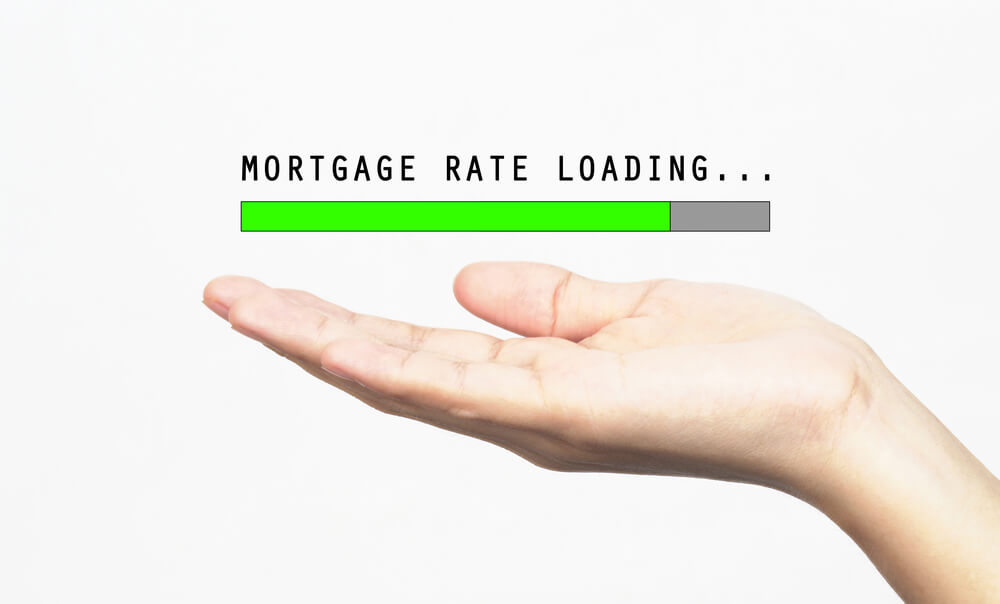Mortgage rates vary because the borrower and the subject property always have distinctive characteristics. Typically, the risks underlying the loans as well as the interest rates are different in each case. Mortgage lending companies often use different pricing models, so even similar cases can have varied pricing. Essentially, when assessing the risk, a mortgage lender typically considers the likelihood of a borrower failing to repay the loan and the amount of money at risk. This means that high-risk borrowers get high rates and vice versa. Keeping this in mind, here’s a look at some of the main factors lenders use to determine mortgage rates.
Loan-to-Value Ratio
A loan-to-value ratio is essentially the ratio between the mortgage amount and the property’s value. If you put $25,000 down on a property that’s valued at $100,000, your mortgage will be $75,000 or 75% of the property’s value, meaning your loan-to-value ratio will be 75%. The higher the loan-to-value ratio, the more the lender is likely to lose if you fail to make payments. Lenders may charge higher mortgage rates for high loan-to-value mortgages.
Credit Score
Typically, borrowers with the highest credit score enjoy the lowest rates. High credit score borrowers also access the widest range of loan products.
Other Factors
Adjust-rate mortgages, cash-out refinances, and loans on investment properties/second homes/ condominiums or manufactured homes are deemed riskier and thus attract higher mortgage rates.
Mortgage Rate Factors Beyond Your Control
Mortgage rates usually rise when there is higher inflation, low unemployment, and fast economic growth. Similarly, mortgage rates typically drop when the unemployment rate rises, inflation falls, and the economy slows. In addition to employment and inflation, mortgage lenders also base their mortgage rates on many other economic markers, including stock prices, housing starts, home sales, retail sales, and corporate earnings. The Federal Reserve’s assessment of the economy is also a key marker for mortgage rates. The Fed sets interest rates based on shifts in economic forces. Similarly, mortgage rates change based on broad economic movements. The Fed rates and mortgage rates don’t depend on each other, but they move in tandem. Mortgage rates’ different drivers also include the type of mortgage you choose.
Different Types of Mortgage Products
- Conventional Mortgages – The federal government doesn’t back this type of loan. It’s typically offered to borrowers who are in a great financial position.
- Fixed-Rate Mortgages – As the name suggests, the interest rate is fixed all through this loan’s life.
- Adjustable-Rate Mortgage – As the name implies, the interest rate for this type of mortgage loan may vary based on market conditions.
- Conforming Mortgage Loans – This type of loan has to conform to the federal government’s set maximum loan limits.
- Nonconforming Mortgage Loans – This type of loan is not bound by the federal government’s set loan limit.
- First-Time Assistance Programs – Special assistance programs for first-home buyers.
- Government-Insured Housing Administration Loans (FHA) – These are government-backed loans for low and middle-income first-time homebuyers who don’t qualify for conventional loans.
- Government-Insured US Department of Agriculture Loans (USDA) – These are government-backed loans targeted at low-income buyers who live in rural areas.
- Government-Insured Veterans Affairs Loans (VA) – These are essentially government-backed loans for military service members, their spouses, and veterans.
Mortgage lenders typically use these factors to determine mortgage rates. By analyzing your finances, a mortgage lender can help you find the right mortgage loan for your needs. A lender can also help you understand and navigate the complex qualification requirements.
Do you have additional questions about mortgage rates? At Fidelity Mortgage Lenders, we’re here to help. To get started, contact us through email or give us a call at (800) 752-9533.
Comments are closed.







